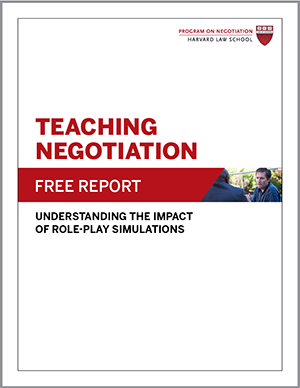
In a recent study of selfishness in negotiation, Fei Song of York University and C. Brian Cadsby and Tristan Morris of the University of Guelph had participants play the “dictator game,” adapted from experimental economics literature. In this game, Party A is given a sum of money to allocate between himself and Party B. Because Party B has no power, Party A’s allocation goes into effect without debate. The dictator game captures the essence of negotiations in contexts with an extreme power differential.
Song and her colleagues compared the behavior of people who played the role of Party A on their own versus those who made the allocation decision as part of a two-person team. The authors also compared how males and females behaved in the role of Party A. Male participants were significantly more selfish when they represented a team than when they acted alone; female participants were less influenced by whether they represented only themselves or a two-person team.
The results for males were broadly consistent with past research by Professor Kristina A. Diekmann of the University of Utah, which showed that negotiators are more selfish when they can attribute selfish behavior to their group rather than to themselves. As David Messick of Northwestern University has observed, football coaches don’t justify the decision to take a new position by saying, “I want more money.” Rather, they tend to say, “I need to protect the financial interests of my family.” Obviously, the two statements mean more of less the same thing.
Song and her colleagues raise the possibility that female negotiators are less influenced by the social context of representing a group. These results shine new light on claiming behavior as it relates to gender and whether negotiators act alone or as part of a team. Specifically, when negotiators begin to reference their family, department, or team, they may be about to claim more than their fair share of the pie.





No Responses to “The Dictator Game: Justifying Selfishness in Negotiation”